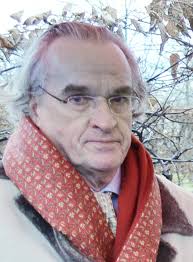

By Dr Kat Williams and Dr Siobhan Hyland.
In May, the alleged leaders of the suspected German far-right coup attempt went on trial. The case shocked Germany to the core when, in December 2022, 25 individuals were arrested on suspicion of preparing for a violent overthrow of the German government and the installation of a new leader and regime. At the time, Reuters stated that they were inspired by the storming of the US Capitol building in 2021.
The members of the German group were said to be members of the Reichsbürger Movement (Citizens of the Reich Movement). The leader of the new state was apparently to be Heinrich XIII Prinz Reuss, with plans to set up new government departments and a “homeland protection company”.
According to apnews, Reuss is among the defendants, along with Birgit Malsack-Winkemann. Had the coup been successful, Malsack-Winkemann, it is claimed, was to be installed in the new government. Interestingly, she had been a member of the AfD, and was also a member of the Bundestag in 2017-2021. The Guardian reported that other members of the parliament described her as a supporter of conspiracy theories, specifically Q-Anon, which gained a growing number of followers during the Covid-19 pandemic in Germany.
These suspects, along with former German military officers, are in the main charged with belonging to a terrorist organisation, with the aim of using force to demolish the current democratic order in Germany, with treasonous intent. Reiss is said to be a ringleader, along with Rüdiger von Pescatore.
Von Pescatore is a retired army officer, and alleged to be one the leaders of the military arm of the coup. He is said to have been discharged from the army after the unauthorised sale of weapons. Von Pescatore was also a commander in the subsumed Special Operations Forces Command (KSK), which Searchlight has reported on previously. In 2020, KSK had 70 soldiers moved from their unit over alleged fears that they were right-wing extremists. In 2017, German broadcasters were said to have reported that at a party members of KSK gave Hitler salutes and listened to right-wing music.
Prosecutors in this case have stated that the Reichsbürger Movement rejects the post-war constitution of Germany and has called for the government to be brought down. The German Interior Minister Nancy Faeser was reported as saying that they are not cranks, but dangerous terrorist suspects.
The group’s plans are alleged to have involved storming the parliament building in Berlin and then negotiating a post-coup order with Russia. Apnews reported that the group had €500,000 in funding, including an arsenal of firearms and weapons. There was also alleged to be an “enemy list”, containing regional and local authorities, to be dealt with when they came to power.
The trials for this case are complex, and there are three ongoing. The Frankfurt trial discussed here, is the most well known, with 26 suspects. In Stuttgart, a trial of nine people began in April, and focused on the military side of the coup. These defendants were allegedly tasked with recruiting new members for the defence side of the coup. Others were allegedly responsible for IT systems and for underground network communications during the coup. Suspect Andreas M is accused of scoping out new army barracks, Alexander Q is accused of being the group’s propagandist, and Markus L and Ralf S are accused of weapons offences.
Finally, a third trial began in Munich with another eight suspects, accused of membership of this terrorist organisation. Four men have been charged with preparing an act of violence against the state and one is charged with weapons offences.
There are three separate trials because there is a large number of defendants, and the verdicts are not expected until 2025. Dw.com has reported that, in the Munich case alone, the Higher Regional Court has set 55 dates to sit for the main trial.
Searchlight will continue to follow and report on these trials.
Photos: Suspected ringleader and future head of state Heinrich XIII Prinz (left); Ex-Bundestag member Malsack-Winkemann (right)
This article first appeared in the Summer 2024 issue of Searchlight





